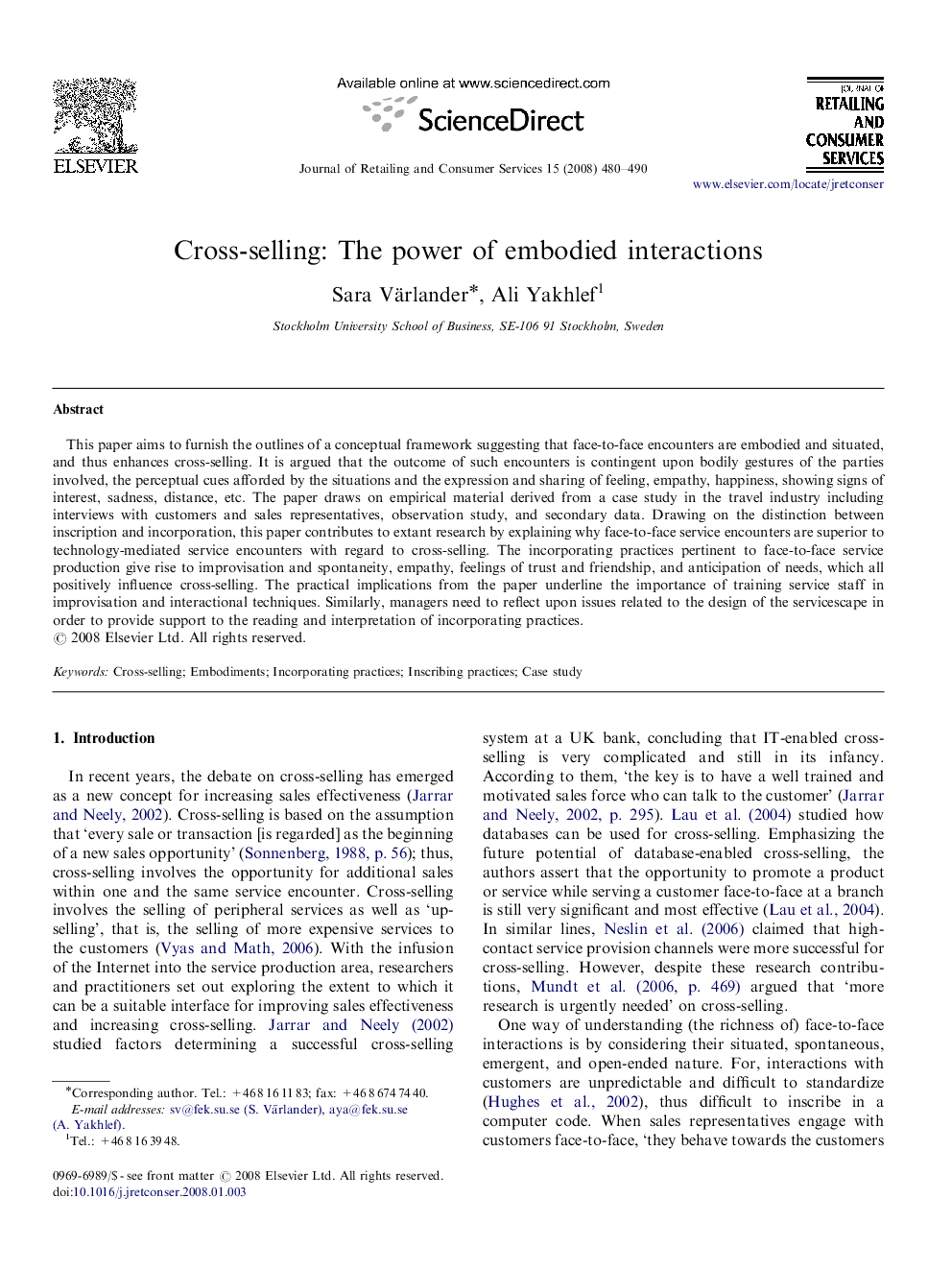| Article ID | Journal | Published Year | Pages | File Type |
|---|---|---|---|---|
| 1029352 | Journal of Retailing and Consumer Services | 2008 | 11 Pages |
This paper aims to furnish the outlines of a conceptual framework suggesting that face-to-face encounters are embodied and situated, and thus enhances cross-selling. It is argued that the outcome of such encounters is contingent upon bodily gestures of the parties involved, the perceptual cues afforded by the situations and the expression and sharing of feeling, empathy, happiness, showing signs of interest, sadness, distance, etc. The paper draws on empirical material derived from a case study in the travel industry including interviews with customers and sales representatives, observation study, and secondary data. Drawing on the distinction between inscription and incorporation, this paper contributes to extant research by explaining why face-to-face service encounters are superior to technology-mediated service encounters with regard to cross-selling. The incorporating practices pertinent to face-to-face service production give rise to improvisation and spontaneity, empathy, feelings of trust and friendship, and anticipation of needs, which all positively influence cross-selling. The practical implications from the paper underline the importance of training service staff in improvisation and interactional techniques. Similarly, managers need to reflect upon issues related to the design of the servicescape in order to provide support to the reading and interpretation of incorporating practices.
